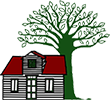Keeping track of changes towards a healthy living in an urban green Suriname
The previous Green Paramaribo Twinning project has already provided a first glance at the benefits of urban green for the citizens of Paramaribo, raised awareness among various stakeholders and experienced some challenges about tropical urban green. The project also has some small temperature meters (Kestrel drops) and digital surveys (Epicollect-5) to track urban green spaces and its benefits in Paramaribo.
With the new proposed “SMALL NWA project”, the role of urban green will be explored in a view of the benefits of healthy living over time by scaling up the Citizen science network to inform and motivate citizens.
This monitoring should lead to more knowledge about the role of urban green in the different vegetation types and neighborhoods, and how it all changes during a day or a season.
Various activities have been set up for this:
1. Citizen-based monitoring and learning: together with government agencies, schools, youth and neighborhood organizations, the network was expanded by making 30 additional temperature meters available, and activate approximately 20 monitoring groups to use our Epicollect 5 app (digital questionnaire ) in Paramaribo. Based on the knowledge acquired for Paramaribo, the aim is also to expand the network to the other large urban green areas in Suriname (Wanica and Nieuw-Nickerie.
2. Streamline data for action. We will develop protocols for automatically cleaning and analyzing the incoming data for a web portal (e.g. linked to ECOSEO or https://gonini.org/) to support decision making regarding access, distribution and management of green spaces.
3. Share information with the Caribbean region. We will contribute to the knowledge on tropical green spaces with a scientific publication, and will provide reflections on the design and use of a based urban green monitoring network for inclusive decision-making in the Caribbean region.
We continue to collaborate with the University of Twente with our existing network:
The social organizations in the Collective Impact group for Urban Green; Directorate of Public Green; Ministry of Spatial Planning and
Environment; Ministry of Land Policy and Forest Management; District Commissioners; Spatial planners, Associations in Suriname and associated network of planners in the Caribbean, Anton de Kom University of Suriname,
and a number of housing associations.
